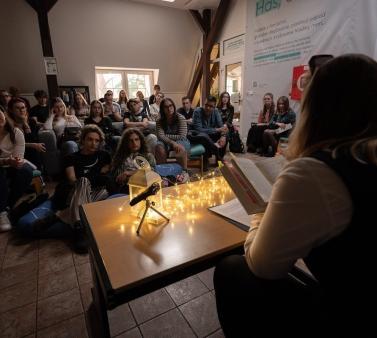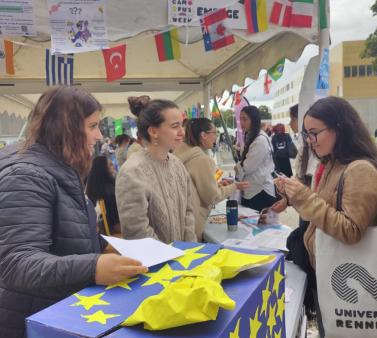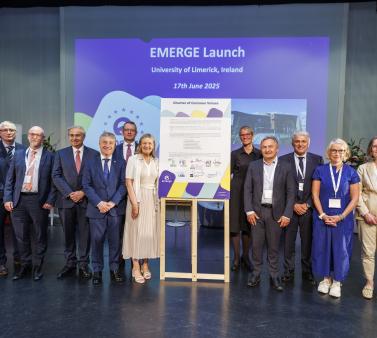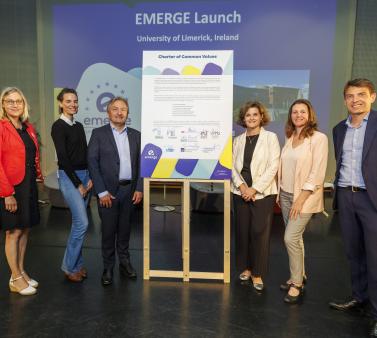Our Alliance is coordinated by the University of Limerick.
The full list of partners includes:
University of Limerick (UL) / Ollscoil Luimnigh /Ireland
The University of Limerick (UL) is a dynamic institution located on Ireland's west coast, founded in 1972 on the eve of Ireland’s accession to the EU. It offers state-of-the-art facilities, welcomes 18,000 students, including 3,000 international students and employs 2,000 staff members. UL students can choose from more than 70 undergraduate programmes and more than 100 postgraduate programs. The university actively engages with its community through UL Engage, which has the aim of integrating civic and community engagement into the University's core missions in research and teaching. UL is known for its excellence in translational research, cooperative education, and its pioneering role in European Studies and Cooperative Education in Ireland.
Rennes 2 University /France

Rennes 2 is among the largest universities in north-western France, with a specialisation in arts, humanities, social, and sports sciences, rooted in humanist values and a commitment to human rights and antidiscrimination. With a focus on excellence in education and innovation thanks to a dedicated staff of 1,000 members, we welcome over 20,000 students across five faculties with an offer of 134 degree programs, a diverse language curriculum in 16 languages and two prestigious interdisciplinary graduate schools, along with a renowned French-language learning center, the CIREFE. We strive to provide a dynamic learning environment, preparing students for future challenges such as climate change, overcoming inequality, and regional transformation.
Université de Bretagne Sud (UBS) /France

UBS is located on the south coast of Brittany, western France. It is a young public and community-based university created in 1995. With a strong maritime identity, UBS is organised around three campuses between the cities of Lorient, Vannes and Pontivy. UBS employs about 1,000 staff members, has over 10,000 students and offers over 100 academic programmes, from Bachelor to PhD levels. They are delivered in three faculties (Law, Economics and Management, Humanities, Languages and Social Sciences, Sciences and Engineering), two Technological Institutes and one School of Engineering.
Inland Norway University of Applied Sciences (INN) /Norway

Inland Norway is a lively, multi-campus institution located in Inland County, with 15,000 students and 1,300 staff members. Serving a demographically and socioeconomically peripheral region, INN is a driving force for societal development, fostering innovation and entrepreneurship in collaboration with local corporate and civic stakeholders. Strategic investments in digital technology ensures close interdisciplinary collaboration across geographic distance and six diverse Faculties. INN boasts 280 study programmes, including five PhD programmes, and collaborates with 250 higher education institutions worldwide. Recognized for research-based education and high academic quality, INN has active student democracy and is an attractive destination for international students.
Univerzita Majeta Bela (UMB)/ Banskej Bystrici /Slovakia

UMB is a comprehensive regional university in central Slovakia, offering close to 392 areas of studies at 6 faculties for various academic levels. It is home to almost 7,000 students and employs 900 staff. With a focus on teacher education, UMB aims to produce innovative, competent and flexible educators by constantly innovating teaching and learning processes. UMB is a Central European leader in community-based learning (CBL), actively promoting this strategy and participating in networks related to CBL research. Located in central Slovakia and on the eastern border of the EU and the Schengen area, UMB offers a unique Slovak perspective on coexistence with national and ethnic minorities, striving for an inclusive society. With a focus on internationalisation, UMB offers modern philological degrees and advocates a policy of multilingual language education at the national level.
Europa-Universität Flensburg (EUF) /Germany
Established in 1946, EUF is one of the nine public higher education institutions in Schleswig-Holstein, Germany. Located in the Baltic Sea coastal and harbour city of Flensburg at Germany's northernmost point, EUF is strongly anchored in a unique historical, cultural, and linguistic border region, encompassing three regional/minority languages (Danish, Frisian, and Low German). With 6,000 students and 664 staff, EUF prioritises internationalisation, offering European, cross-border, and multilingual degree programmes and fostering cooperation with over a hundred universities worldwide. The university's core areas include educational sciences, teacher education, interdisciplinary European studies, and sustainability and transformation studies, through its 126 academic programs.
Neapolis University Pafos (NUP) /Cyprus

NUP is an accredited private university in Cyprus, offering English language programmes that attract international students. It welcomes 3,300 students and employs more than 250 staff. NUP is accredited for 34 academic degrees at Bachelor, Master, and PhD levels across a wide array of subjects, both on campus and through distance learning. NUP's mission is to create a people-centred educational institution with international quality standards, emphasising social responsibility and academic excellence. The University aims to contribute to social cohesion, scientific progress and the development of high-quality professionals through interactive and innovative learning pedagogies. As part of its academic development, NUP is working to develop joint degrees with Greek, UK and other EU universities. NUP has developed strong links with the business community in Pafos and the Republic and boasts a remarkable employability rate of over 93% thanks to collaboration between academia and the business sector.
Universidade da Coruña (UDC) /Spain

UDC was established in 1989 and operates from two campuses in A Coruña and Ferrol. As a public institution, UDC is committed to generating and disseminating culture and knowledge through research and teaching, aiming to contribute to societal welfare and widen participation in higher education. It is home to 17,000 students and employs over 2,200 staff and is home to more than 100 bachelor, master and doctoral degrees in most of fields of knowledge. UDC prioritises the formation of an open, educated, and democratic citizenship, emphasising the analysis of reality and problem-solving with the support of knowledge. The university is dedicated to the study and development of Galicia, emphasising its social, cultural, and linguistic identity. The university focuses on comprehensive training, entrepreneurship, gender equality, digital skills, and internationalisation, contributing to the development of skills for global employability.
Democritus University of Thrace (DUTH) /Greece

Established in 1973, DUTH is a public research university located in Thrace, Greece, with 10 faculties and 31 departments spread across seven cities and 10 campuses. It is home to 27,000 students and employs nearly 1,000 staff. Actively engaging in local and national social and economic development, DUTH collaborates with businesses and the public sector, aiming to contribute to economic growth and social inclusion. The university plays a vital role in southeast Europe, fostering education, research, and development in neighbouring EU member states and candidate countries.




